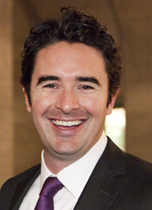 The
critique of my beloved Chief Investment
Officer that I most fear is that
we are excessively pro-asset owner—that we are perhaps too blind to the sins of
our target audience, and too negative on the likes of consultants and asset
managers. The second most concerning critique is that through our (very fun)
awards dinner, we may have been overly generous with what should be considered
“Industry Innovation.”
The
critique of my beloved Chief Investment
Officer that I most fear is that
we are excessively pro-asset owner—that we are perhaps too blind to the sins of
our target audience, and too negative on the likes of consultants and asset
managers. The second most concerning critique is that through our (very fun)
awards dinner, we may have been overly generous with what should be considered
“Industry Innovation.”
This cover story should dispel any such notion.
The Tampa Fire & Police Pension is doing something so wildly different from its peers that I felt an almost primal urge to send Managing Editor Leanna Orr to the Sunshine State to investigate. And so in January, I did.
What came of her visit to Florida—and another trip to Atlanta—is what I consider to be the most important article we have ever published. I can say that without bias because (a) I have personally edited and/or written every piece that’s ever been published in what is now Chief Investment Officer, and (b) because I didn’t write it myself.
I assert that it’s the most important not only because it addresses the two primary concerns that lurk in the back of my mind. No, it’s also the most important because despite the tone we often take when covering this industry—“flippant” being the most common moniker applied to our work, which I take great pride in—this is an intensely serious issue.
I can tell you without an iota of doubt that the structure of Tampa Fire & Police’s retirement investments is unwise.
Without getting sanctimonious about it, thousands of people rely on the belief that when they retire from the Tampa police and fire departments, they will be taken care of. They will be able to afford rounds of golf, drinks by the pool, and the occasional Caribbean cruise. And, thus far, that has all come true—for I must stress that nothing has ever stopped them from getting their retirement benefits.
But that doesn’t mean that it will be that way forever. As someone who has the pleasure (sometimes) of speaking to the smartest people in the retirement industry, I can tell you without an iota of doubt that the structure of Tampa Fire & Police’s retirement investments is unwise. The most fundamental belief of these industry veterans is that no one can be right much more than 50% of the time, and thus diversification—of investments, of managers, and of ideas—is an essential safeguard against massive drawdowns and the nightmare scenario of not being able to pay retirees what was promised to them. Tampa, it is easily argued, has none of these safeguards.
Some people will not enjoy Leanna’s article. It’s uncomfortable to discuss people doing things in a way that violates all standard norms. It’s especially uncomfortable when nothing has actually gone wrong yet. But I believe that we would be doing our readers a disservice—and validating the critiques that most concern me—if we didn’t take an honest look inside the most unconventional pension investment structure I have ever come across. There’s innovation—and then there’s whatever this is. They are not the same thing.
